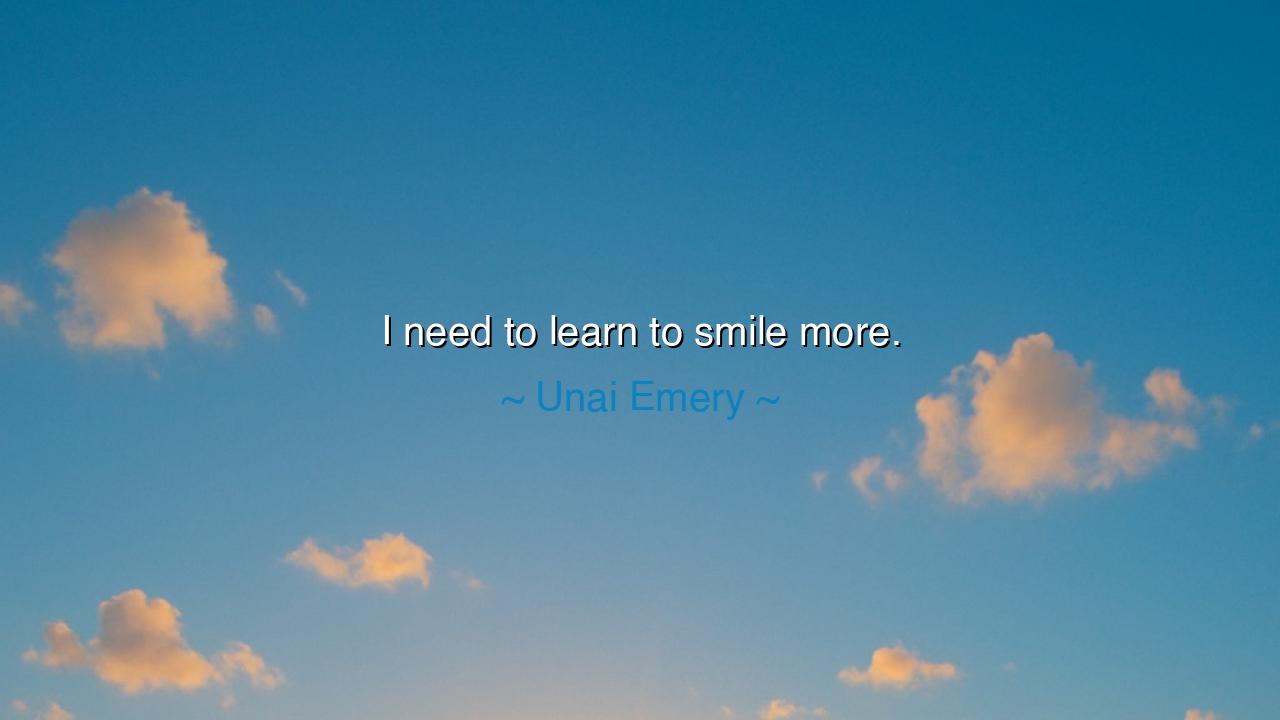
I need to learn to smile more.






The words of Unai Emery, humble and sincere, resound like a soft bell in the hearts of those who listen: “I need to learn to smile more.” Though brief, they contain within them the wisdom of ages. They are not merely an admission of a personal shortcoming, but a declaration of the universal struggle between duty and joy, between the weight of responsibility and the freedom of the spirit. To speak thus is to acknowledge that the smile is not only a gift to others, but also a discipline, a practice that must be cultivated like a garden.
For a smile is more than a gesture. It is the unveiling of the soul, the light that shines through the eyes and lips, declaring, “I am alive, and I am not defeated.” A man may achieve victories, may master knowledge, may even command others, yet if he withholds the smile, he withholds the gentlest strength of all. Emery’s words remind us that greatness is not only measured in trophies or triumphs, but in the warmth we bring to others, and in the courage to let our own humanity shine.
Consider Marcus Aurelius, emperor and philosopher, who bore the burdens of empire with quiet strength. His Meditations reveal a man of stern discipline, often weighed down by duty. Yet even he recognized the need for kindness, gentleness, and the warmth that softens authority. Had he learned more to smile, he might have left not only the wisdom of a stoic king, but also the memory of a heart made approachable. Emery’s words echo this ancient struggle: the desire to balance discipline with warmth, determination with joy.
To learn to smile more is to choose to soften the edges of life. It is not a weakness, but a strength. For even in hardship, the smile says, “I will not be conquered by sorrow. I will rise.” Warriors before battle would clasp hands and laugh, knowing that their unity gave them strength. Leaders who smile remind their people that hope is not lost, even in the darkest hours. A smile, then, is not frivolity—it is strategy, medicine, and shield.
There is also humility in this confession. To admit, “I need to learn,” is to acknowledge that one is still on the path of growth. Emery, like all men, bears the weight of his role, the endless striving, the relentless pursuit of excellence. But he reveals a truth: that the human heart hungers not only for victory, but for joy. And joy must often be learned, practiced, and reclaimed, especially by those who carry many burdens.
The lesson for us is clear: do not wait for perfect circumstances to smile. Do not reserve joy for the distant day when all troubles fade. Instead, practice the smile daily, as the warrior practices his sword or the scholar his pen. Let it be a discipline of the spirit. Smile at your family, your friends, even at strangers, for in so doing you kindle sparks of light that may grow into great fires of hope.
Therefore, let all who hear this teaching act with intention: when the world presses heavily upon you, breathe, and smile. Not because all is well, but because you choose to declare courage in the face of hardship. Let your smile be a banner raised against despair. And when you struggle, remember Emery’s words—there is no shame in learning, even in learning joy.
So carry this wisdom forward: “I need to learn to smile more.” May it remind you that greatness lies not only in victories won, but in the warmth shared, the hope given, and the light that shines through the simplest gesture. Smile, and you will not only lift yourself—you will lift the world.






AAdministratorAdministrator
Welcome, honored guests. Please leave a comment, we will respond soon